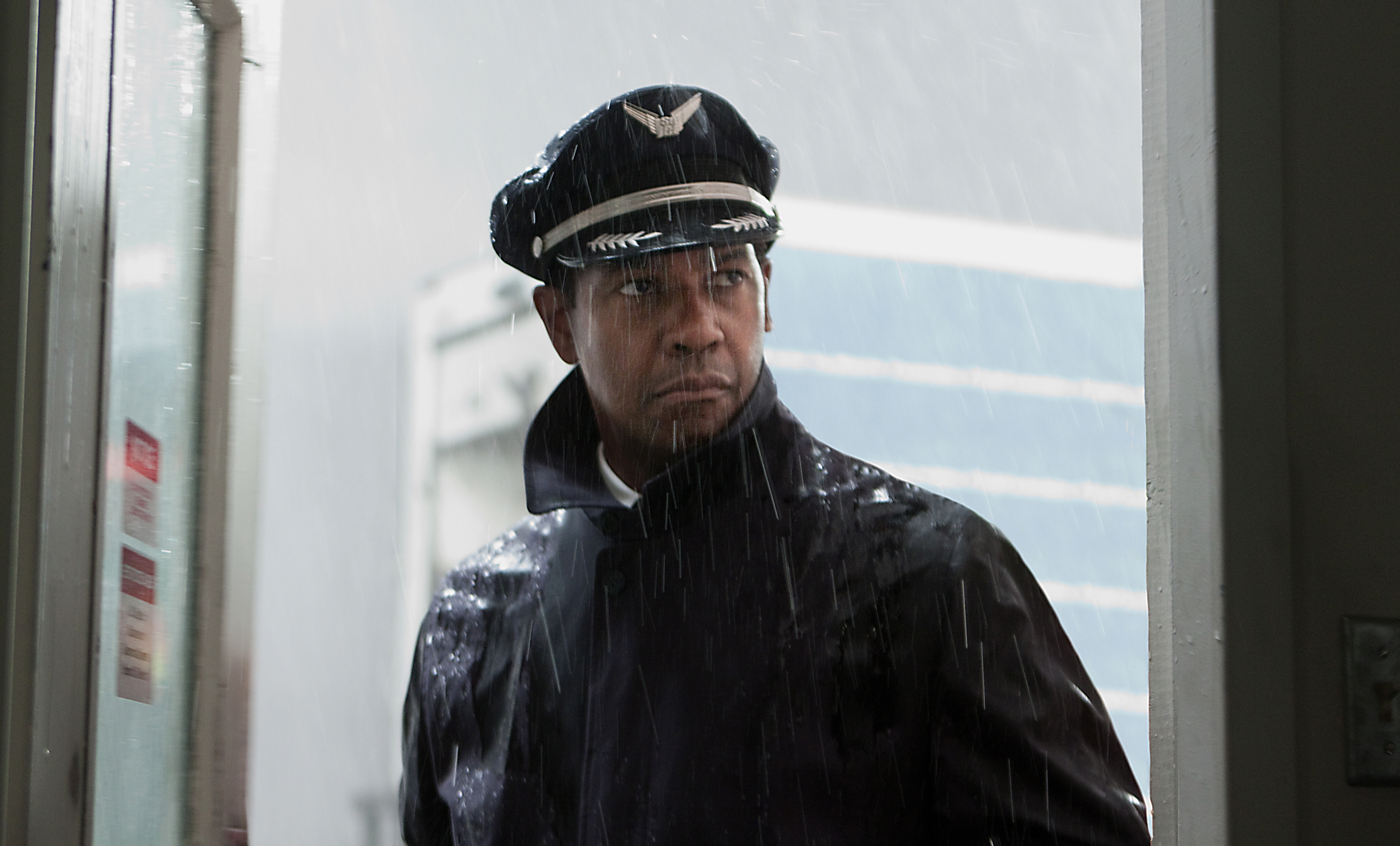The audience members sit with clenched jaws and gasps caught in their throats as they watch a commercial plane pull out of a nose-dive, flip upside-down and then crash-land next to a church.
In Robert Zemeckis’ newest film “Flight,” Denzel Washington gives a show-stopping performance as Whip Whitaker and epitomizes what it means to be an “imperfect hero.” Selected as the New York Film Festival’s closing film of 2012, “Flight” is deserving of its already warm reception.
Captain Whitaker is one of the most gifted pilots in the airline industry, but he’s also the biggest drunk. Even with a blood alcohol content over .25, he is still able to make an impossible crash landing after his plane begins to fall apart midair. As a hearing to determine the cause of the accident approaches, Whitaker struggles with his addiction, all the while leaving the audience to ponder whether or not he’s really to blame.
Washington delivers humor, loss and addiction perfectly. Using mere facial expressions and dialogue, he transforms from a charming and tender man into a raging monster under the influence of alcohol. Unlike Zemeckis’ former characters Marty McFly and Forrest Gump, Whitaker is by no means some sort of likable underdog who eventually fights his way to the top. Instead, he is a large man of means and status who eventually loses everything.
Washington keeps good company in the way of talent with co-actors Kelly Reilly, John Goodman and Don Cheadle, who all execute their roles to provide equal parts wit and drama.
Reilly’s character Nicole gives a highly dramatic performance as a junky. Following an overdose, she easily glides from pathetic to likable in her efforts to attend Alcoholics Anonymous meetings. Her character also acts as a vessel to depict the fine line Whitaker rides between “hero” and “monster.” While he saves her from poverty and abuse, he is unable to protect her from his own alcoholism.
Goodman, meanwhile, provides a largely comedic performance as Whitaker’s crude friend and cocaine dealer, Harling. Following the emotional scene where Whitaker learns that six people died in the crash, Harling rolls into the hospital to overly cheerful music, hits on an unsuspecting nurse with distasteful pickup lines and condemns the quality of drugs the hospital has given Whitaker.
After a 12-year break from live-action in favor of computer animated films like “The Polar Express,” Zemeckis is still able to use a camera to capture raw emotion. With well-timed close-ups, he keys in on the actors’ faces to catch subtle emotional changes. When Whitaker wakes up in the hospital and learns about the deaths of the passengers, one blood-soaked tear rolls down his face. The close proximity of the camera is able to catch the expression of regret and pain on Whitaker’s face.
Likewise, the cinematography and special effects in big action scenes are just as effective. Because the entire plane set had to be inverted, this was quite the feat from both a physical and cinematic standpoint. In using the camera to focus on particular people in the plane and then refocusing on their objectives, separate mini-stories unfold among the chaos and stretch each moment for maximum tension and impact. A flight attendant’s noble efforts to save an unstrapped child in the upside-down cabin is clearly discernible in the turmoil.
While the film delivers in the way of storyline and theme, it does drag slightly near the end. Because of the massive action that occurs early on in the film, the later scenes dealing with Whitaker’s addiction can drag, although Zemeckis usually breaks these up with tastefully delivered comedy. After one such scene, Harling comes in to “sober up” Whitaker by getting him high off cocaine while Cheadle’s character watches in astonishment.
Similarly, the plotline with Nicole starts out as a large and powerful part of the story. As the film progresses, however, she seems to fade into the background. Then, two-thirds of the way through, she simply leaves and the storyline disappears altogether. This was confusing and definitely leaves the audience hanging.
Despite these minor plot discrepancies and lulls in the flow, “Flight” is a thought-provoking film with impressive performances and skillful cinematography. While drawing on familiar storytelling trademarks, Zemeckis also brings something new to the screen with his hard-hitting protagonist and leaves the audience to ponder questions of responsibility, honesty and the human will.
Email Rocha at krocha@media.ucla.edu.

I have a problem with the movie Flight. I feel after watching the movie.
That the Captain assisted in the structure damage to the plane during
take off when he pushed it to the line breaking the storm. Resulting in
the deaths of 6passengers. The tail fin screw may not have broken
otherwise. This should of been addressed with the ntsb investigation as well.. she dont lie she dont like cocaine.. lol